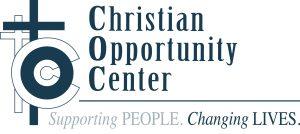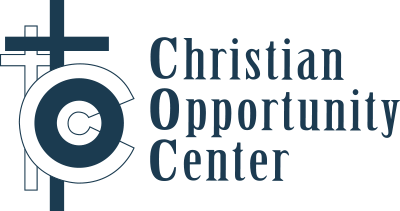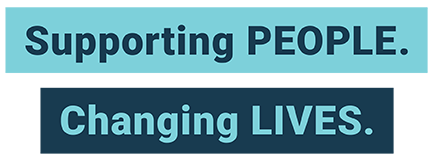Several significant changes are impacting the way in which Christian Opportunity Center (COC) provides residential and vocational services for adults with disabilities and the organization is already taking steps to address these changes.
The biggest change is the privatization of Medicaid, or managed care. Beginning April 1, 2016, the State contracted with three Managed Care Organizations (MCOs) to handle the funding of services for people who are Medicaid eligible, which is the majority of people currently served by COC. COC has contracts in place with all three MCOs: AmeriGroup, AmeriHealth Caritas, and UnitedHealthcare. The biggest challenge with managed care has been getting the MCOs to understand who COC is and what COC does, because most of their experience has been in the physical health arena.
The second challenge has been learning their complex billing system so that COC can be reimbursed for services provided in a timely manner. For the first two years, all provider organizations like COC are automatically in the provider panel. Then, beginning April 1, 2018, the MCOs can decide which providers they want in their provider panels. COC is optimistic about its future success with MCOs because data recently obtained from the State clearly demonstrates that COC’s rates are very competitive relative to other organizations providing disability services.
Another significant change is the phase out of sheltered employment with new State rules being implemented on May 4, 2016. For decades, advocacy groups have fought to eliminate sheltered employment, believing that every person with a disability should be working in a community business via the supported employment program. Supported employment is where a trained COC employee goes into a community business and works with the person with a disability to learn their job, and then gradually fades those supports as the job skills are learned. COC has been doing supported employment since 1987 and has many success stories of people who have become long-tenured, dependable employees in community businesses.
By May 2018, those people not in community jobs will have the option of a non-work oriented day program known as Day Habilitation (also known as Life Skills), but they will no longer have the opportunity to earn a paycheck in COC-Pella’s plant. This change is about ideology and the premise that no one with a disability should be in a segregated work setting like sheltered employment. The Department of Justice has ruled in several states that sheltered employment is a violation of the Americans with Disabilities Act (ADA). Consequently, over the next two years, COC will increase efforts to place as many people as possible in community businesses.
In conjunction with the phase out of sheltered employment are requirements that Day Habilitation services be integrated into the community. COC-Pella has already taken steps to relocate the Life Skills program to a site in the community. COC-Oskaloosa plans to use the current sheltered employment site for Life Skills due to the planned phase-out of sheltered employment and the fact that the current location is just one block from the town square. COC-Indianola plans to relocate the Life Skills program from its current location in the industrial park to a location close to downtown.
Finally, there are new regulations from the federal Centers for Medicare and Medicaid Services (CMS) that require small group residences funded under the Medicaid Waiver program to be integrated into the community. There is a five-year window for full compliance.
COC-Pella’s issue is whether or not the two Medicaid Waiver homes on North Broadway across from the Pella Main Building are integrated into the community. COC has made the case that they are integrated into the community, but there is the possibility that the four people living in each home may have to be relocated to homes in residential neighborhoods.
These are just some of the unique challenges, but after 47 years of service, COC is optimistic that it has plans in place to address all of the challenges and continue to provide the quality supports and services the people with disabilities and their families have come to expect. Much of COC’s optimism is related to the incredible support it has received from various communities over the many years.
Founded in 1969, COC provides residential and vocational support and services to more than 300 people with disabilities in Dallas, Mahaska, Marion, Polk and Warren counties. COC’s mission is to integrate Christian values in teaching skills for life. For more information on COC and its services visit https://christianopportunity.org/.


